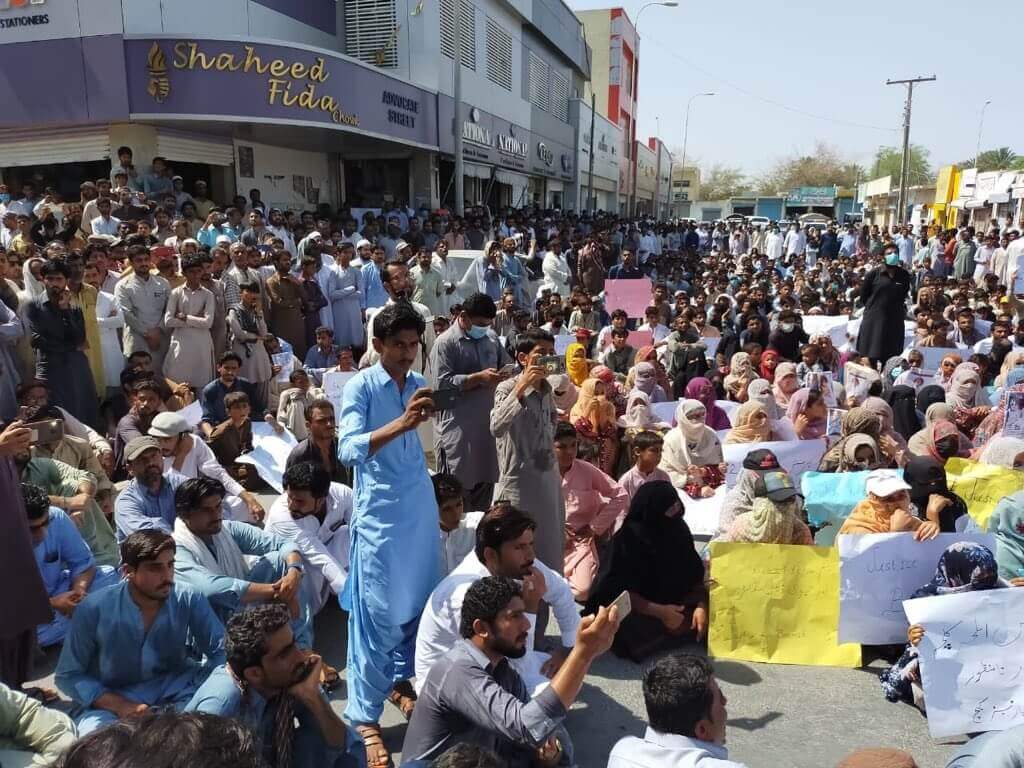On May 31, an attack on a 4-year-old and her mother brought the ongoing instability in the Balochistan province of Pakistan to a new low. The incident occurred at Makran, a southwestern district of Balochistan. The mother was shot dead by armed intruders, and the 4-year-old was severely wounded. While violent incidents are common occurrences in the province, this incident, in which a mother and her child were targeted, stirred resistance amongst the residents.
Soon after the incident, residents started with an online campaign #JusticeForBramsh, which asked the governmental authorities to take action against the perpetrators of the violence. However, after officials took no action in the past week, protests erupted in various cities across the province, including in Washok, Bulaida, and Gwadar. The demonstrators refused to disperse, demanding that the authorities arrest all the culprits of the attack. In fact, the protests have morphed into a wider movement against government authorities supporting armed gangs and failing to enforce justice and the law, and to ensure safety.
Amid this alleged complicity of local authorities, residents have taken matters into their own hands. One of the culprits was captured by residents and handed over to the authorities. Allegedly, the culprit identified himself as Altaf Mazar and revealed his connection to the ruling party, the Balochistan Awami Party. He also disclosed his affiliation with the “death squads”–a term used to describe groups that are outsourced to kill residents of Balochistan by the Pakistan Army’s intelligence agencies, namely the ISI and the MI. The leader of the Balochistan National Party, and former chief minister, Akhtar Mengal, accused the Pakistani judicial system of ignoring such violence caused by the ruling party of Balochistan.
The inherent distrust in the Pakistani government and related authorities is not a novel challenge for the region. Balochistan witnesses regular violence caused by the separatist movement Baloch Liberation Army, who are demanding autonomy for the province. In May, two separate incidents led to the death of at least seven soldiers. The separatist movement is based on the belief that Balochistan does not receive its fair share of revenues from the mineral and petrochemical extraction operations in its region.
Their resistance and demands for autonomy grew stronger after the announcement of a $6 billion China-Pakistan Economic Corridor Project (CPEC) in 2015. On November 5, 2019, the Chief Minister of Balochistan, Jam Kamal Khan, approved the “Gwadar Master Plan”. Accordingly, Gwadar, is to be developed into a massive port, and forms a crucial part of China’s Belt and Road Initiative (BRI). The master plan also included the construction of a New Gwadar International Airport. Balochistan’s residents believe that the project is imperialistic as the influx of tourism and industries in the region would attack the ethnic dominance of Baloch people in the province. This led to several attacks by Baloch nationalists and other organisations on Chinese engineers and workers. To combat this, Pakistan deployed its military and paramilitary to protect the project and its workers.
It remains unclear how the Pakistani government will respond to further unrest in the region due to the ongoing protests.
Also Read: Pakistan Unearths $625 Million Loss From CPEC Due to Chinese Corruption
Image Source: The Diplomat

